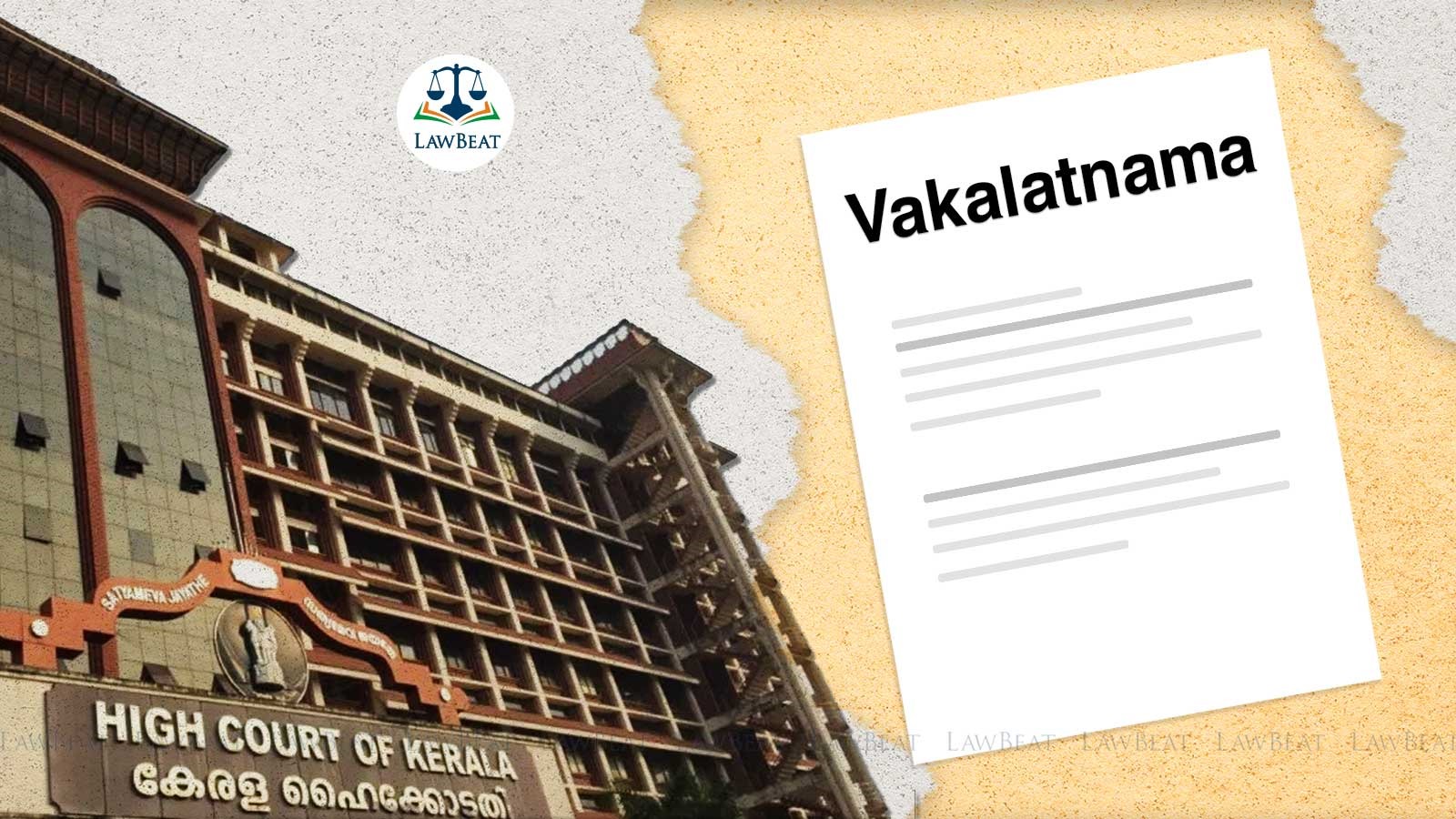Kerala High Court to Decide if Non-Senior Advocates Can Argue Without ‘Vakalatnama’

The court permitted the Advocate to appear without Vakalatnama in the instant case but sought it fit to seek the help of lawyers on the issue
The Kerala High Court is set to examine whether a lawyer who is not a designated Senior Advocate can argue a case without holding a vakalatnama, also referred to as ‘Vakalat’. A vakalat is a document that authorises an advocate to represent a litigant in court. Typically, only advocates who hold a vakalat or designated Senior Advocates instructed by them are permitted to argue a case.
A division bench comprising Acting Chief Justice A Muhamed Mustaque and Justice S Manu will interpret Rule 2 of the Rules framed by the High Court of Kerala under Section 34(1) of the Advocates Act, 1961.
The court noted : “Taking note of the importance of the issue, as to whether a non-designated Counsel holding no vakalat executed by the party can make submissions and argue case before this Court or not, we thought it fit to seek the help of lawyers, who are present before this Court. Accordingly, we sought the help of Senior Counsel Sri.S.Sreekumar, Adv.Sreekumar Chelur, Dr.George Abraham and Adv.Deepu Thankan, who readily agreed to assist the court. We also seek the assistance of any lawyer who are willing to make submissions before this Court in this matter.”
The case involved the petitioner, Sherly Albert, aged 56, residing at National Residency, Kochi, who filed a writ petition against the District Collector of Idukki and 10 others. She sought a directive to halt illegal construction activities on her property and demanded a report on fraudulent transfers in the 'Ranimudi estate’. Advocate Aysha Abraham held the vakalat for Sherly Albert. She instructed Advocate Yeshwanth Shenoy, not a designated Senior Counsel, to appear on her behalf. This led to the court questioning Shenoy’s engagement without a vakalath, which is typically required for non-Senior Advocates.
Advocate Shenoy argued that he is enrolled with the Bar Council of Kerala and referred to Rule 2 of the Rules framed by the High Court of Kerala under Section 34(1) of the Advocates Act, 1961. According to Rule 2:
- No advocate can appear in court without a written appointment, except if an advocate, already appointed, engages another advocate for pleading.
- An advocate can declare before the court that they are acting on instructions from the appointed lawyer.
Shenoy contended that "pleadings" should include making submissions as instructed by the counsel holding the vakalat. He highlighted that a memorandum of grievance regarding the clarity of these rules was rejected by the High Court's Grievance Committee.
The government pleader, on the other hand, opposed Shenoy’s argument, asserting the necessity of filing a vakalat for representation. Additional respondents represented by various advocates also echoed the importance of maintaining the standard procedure of vakalat for case appearances.
The court concluded that if "pleadings" encompass all aspects related to conducting a case and making submissions, then Advocate Shenoy could indeed argue without filing a vakalat. "If the 'pleadings' include entire aspects related to conduct of a case and making submissions, no doubt Advocate Shenoy can be permitted to appear before this Court without filing vakalat. But the issue has to be resolved by this Court,” the order stated.
However, the court recognised the need for a definitive resolution and scheduled the matter for a hearing on July 10, 2024.
Cause Title: SHERLY ALBERT v THE DISTRICT COLLECTOR, DISTRICT COLLECTORATE, IDUKKI [WP(C) NO. 26324 OF 2022]
